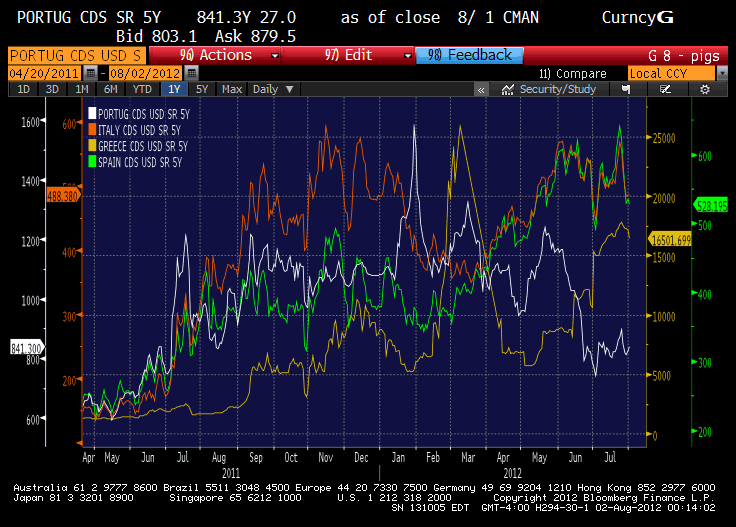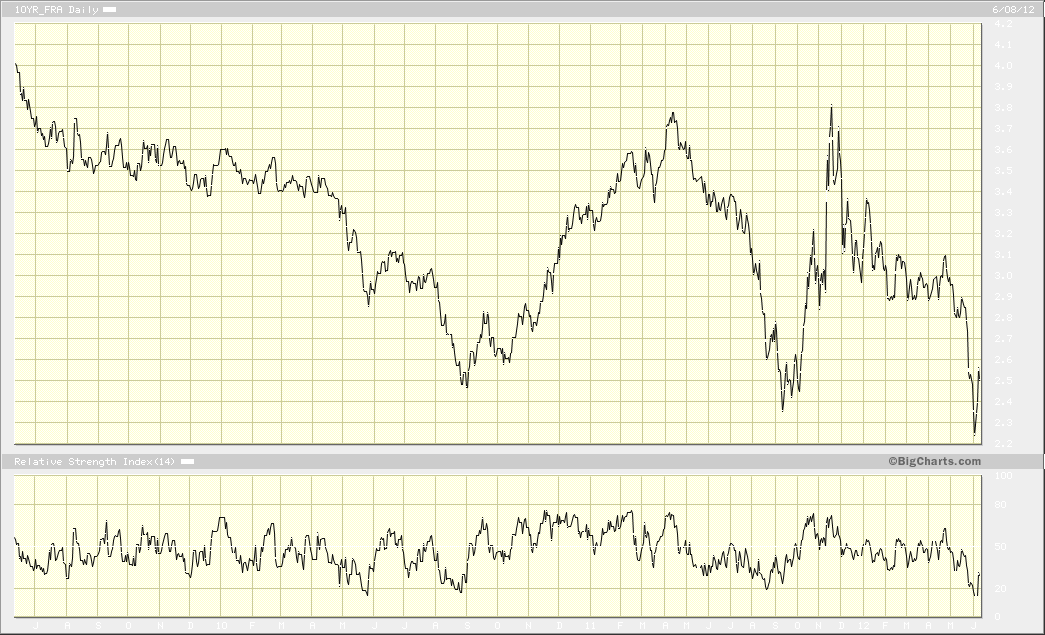Bull and bear Draghi tries to dig Euro area out of hole as France falls i Share Centre Blog
Post on: 29 Апрель, 2015 No Comment

Written by: Michael Baxter on August 26th 2014
Bull and bear: An optimistic and pessimistic view of investment news. Today’s stories: Draghi tries to dig Euro area out of hole, as France falls in. Yellen adopts dovish tone. Draghi goes off the cuff. Hollande’s hole gets deeper. Germany struck by falling business confidence. UK bond yields rise. Private Equity, is the sleeping giant awaking?
Draghi tries to dig Euro area out of hole, as France falls in
Jackson Hole. Once a year the top brass at the Fed, central bankers across the world, and finance ministers get together for a jolly good natter at Wyoming. In most years, the Fed chairperson makes a few headlines.
This time, however, it was Mario Draghi’s turn to grab the limelight.
But before we turn to super Mario, let’s hear from Janet Yellen.
Yellen adopts dovish tone
She rather muddied the water. The Fed has been sounding increasing hawklike of late, but down in the Hole, or over at Jackson Hole, Ms Yellen sounded distinctly dovelike. “Under-utilisation of labour resources still remains significant,” she said.
It all rather depends on the US labour market. How much slack is there? Ms Yellen seems to think there is still quite a bit, but many economists disagree.
“Yellen will have little choice but to change her stance,” said Paul Dales at Capital Economics.
Capital Economics is predicting a rate hike in March next year. US inflation has risen lately, but will the hike in prices prove to be a one-off? In fairness, US inflation is not exactly scary – the latest data has it at 2 per cent.
At heart this boils down to how many US workers want to work longer hours than they do. Ms Yellen emphasises the number of part-time workers, while others look at US job data, and say it is really quite simple. US unemployment has fallen drastically, and if this carries on for much longer the US will run out of capacity.
Draghi goes off the cuff
Meanwhile, Mario went off script.
In the text to his planned speech circulated to the press, he was supposed to talk about one-off factors pushing down on Eurozone inflation. According to the most recent data, Eurozone inflation is at just 0.4 per cent. Many countries have deflation and others seem to be heading that way. So sure, the region is close to seeing deflation, but falling food and energy prices and the strong euro is behind this, and these things can go into reverse.
However, he didn’t follow the script. He put the emphasis on expectations, which are low. When it comes to inflation, what we expect to happen is important. Inflation expectations influence inflation. Mr Draghi is worried about that.
He should be. The ECB has mismanaged itself. That the region is so close to seeing outright deflation is a sign of horrendous policy errors.
It is not Mr Draghi’s fault. There are other key members of the ECB’s rate setting committee who are so hawk-like, it is a wonder they don’t sprout wings, and dive from the sky on prey.
Maybe though, the penny is dropping. Quantitative easing across the region is surely close. If nothing else, this may be good for European equities.
Hollande’s hole gets deeper.
What do you do when you are in a hole? Well, you don’t dig deeper.
The snag is that French politicians seem to disagree on the nature of the hole they are in.
Francois Hollande and his Prime Minister Manuel Valls think that what France needs is reform and austerity. If those who want to apply yet more stimulus got their way, they would just dig France into a bigger hole say both the President and Prime Minister.
On the other hand, Arnaud Montebourg, who was the economy minister until last week, seems to think that actually what Hollande, and his political ally Angela Merkel are doing, is dig France into an even deeper mess.
So he criticises his boss, and the lady who some unkind fellows may describe as Hollande’s boss. He said to ‘Le Monde’, “The priority must be exiting crisis and the dogmatic reduction of deficits should come second.” He added: We need to raise the tone. Germany is caught in the trap of austerity that it is imposing across Europe… France is a free country which shouldnt be aligning itself with the obsessions of the German right.”
He continued: “Promising to get the economy going again, on the path to growth and full employment, hasnt worked. Honesty obliges us to acknowledge this…The role of the economy minister and any statesman in his place is to confront the truth—even if it is cruel—and propose alternative solutions.
Education minister Benoît Hamon joined in. Agreeing with his fellow minister, he said: The worst thing would be to think of French people as children who havent understood.
That went down well with Hollande and Valls – NOT.
Mr Valls said the two men had crossed a yellow line. Let’s face it, criticising Mr Hollande is fair enough, but to criticise Ms Merkel too, well that is not just beyond a yellow line, it is also beyond a Maginot Line.
So Mr Hollande dissolves parliament.
There are many issues emerging here, and plenty have documented what is wrong with the French economy.
The tragedy of it all, however, is that this was so predictable. This column and many others have predicted the general trend but maybe not the specifics, over and over again in recent years.
The entire euro area is applying austerity. Central banks fight the fear of hyperinflation, when deflation is the bigger threat. Many countries find that having the single currency is suffocating them. It is all exacting a heavy toll.
It is a shame that the UK has burned so many bridges with the Eurozone’s elite that it can’t offer some kind of leadership role.
Instead, the region appears to be heading for the kind of crisis that arch bears were warning about two and three years ago.

Germany struck by falling business confidence
Then, to cap it all, comes news that the IFO index, which tracks German business confidence, has fallen to its lowest level in a year.
It fell to 106.3. That may not mean an awful lot to many people, but the point is that it was worse than expected.
IFO president Hans-Werner Sinn said: “[German companies] were again less satisfied with their current business situation. Also with regard to the further course of business, they are more sceptical than in the previous month.” He added: The German economy is continuing to lose steam.
The thing is that the German economy contracted in Q2, so we don’t really want to lose steam from there.
UK bond yields rise
Meanwhile, you may be interested to note that the yield on UK ten year government bonds rose sharply over the bank holiday weekend. US and UK yields have been following each other pretty closely. On Friday, the yield on both UK and US ten years was 2.40. At the time of writing, the yield on the US bonds is 2.38, but for the UK bonds it is 2.51.
What does this tell us?
Well, it seems the markets are deciding that US rates will rise before they do in the UK, and that two MPC fellows who voted for a hike in rates earlier this month will continue to be in the minority for some time.
Private Equity, is the sleeping giant awaking?
As of July this year, there was a record US $1.16 trillion available for investments sitting in private equity funds, according to the Preqin Quarterly Update. Richard Parsons, head of private equity coverage at Deloitte, said: “Now most of the larger funds have successfully raised new funds they are actively looking at ways to deploy their capital into growth opportunities.”
He added: “Investors in private equity firms, which include pension and sovereign wealth funds, now have a greater risk appetite and are looking for returns in an environment with relatively low interest rates. They see the private equity market as being able to provide this.
So far, we havent seen any huge leveraged buyouts, with the debt markets not strong enough to support a multi-billion cheque. However, the ongoing recovery in the debt market coupled with the wall of dry powder, controlled by private equity, means we could start to see some significant M&A deals in the coming months.
This is an idea you have read here before.
Private Equity has lots of money. When is the idea time to opt for leveraged buy-outs? Answer number one. while rates are still very low, but the economy is picking up. Answer number two: just before rates go up.
Now is the time when Private Equity deals should surge.
Equity values should rise on the back of this.
These views and comments are those of the author alone and do not necessarily reflect the view of The Share Centre, its officers and employees














